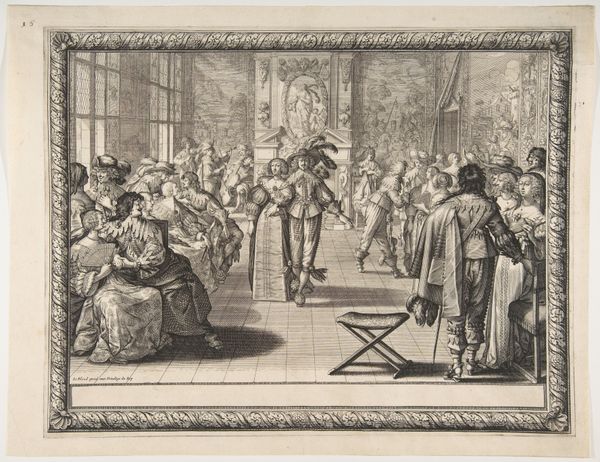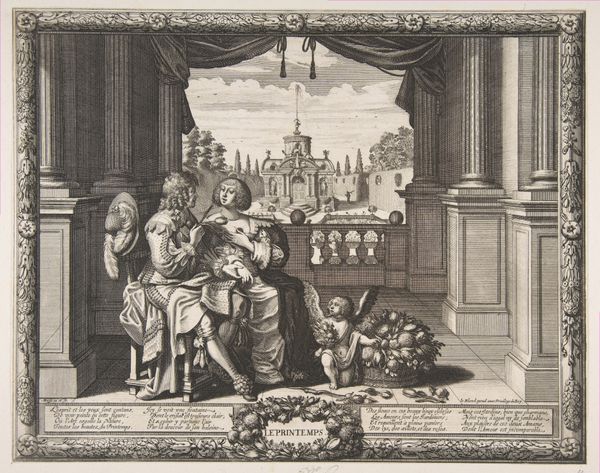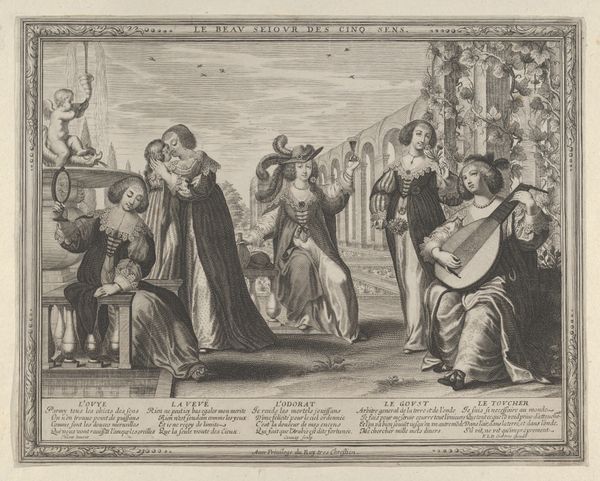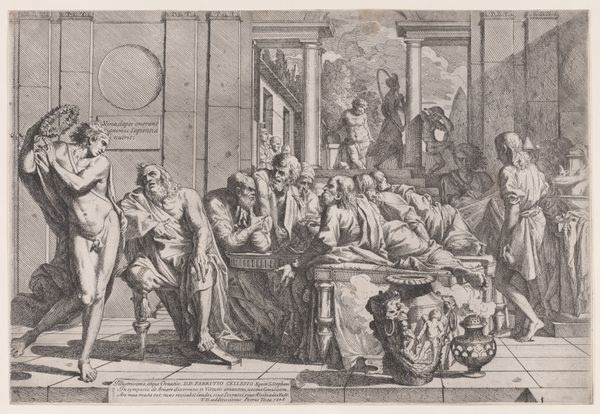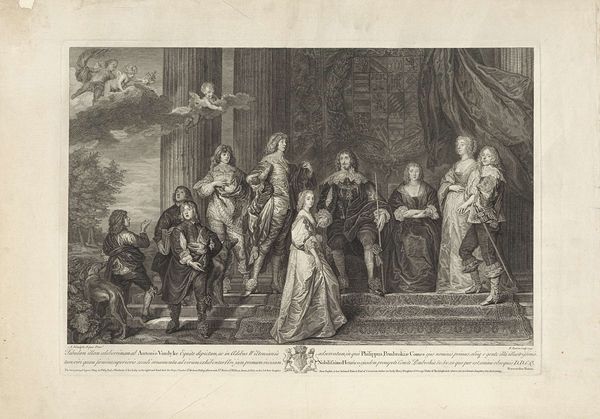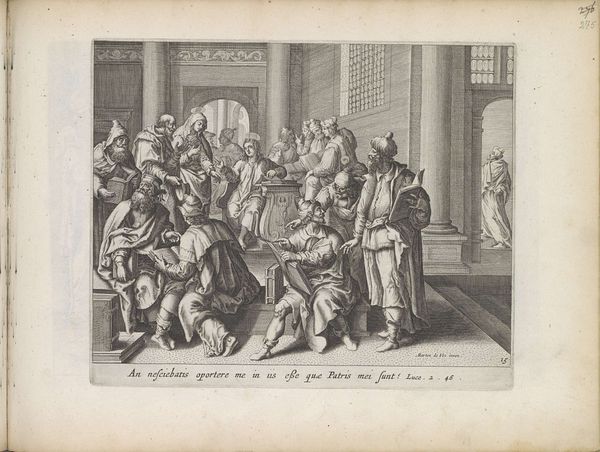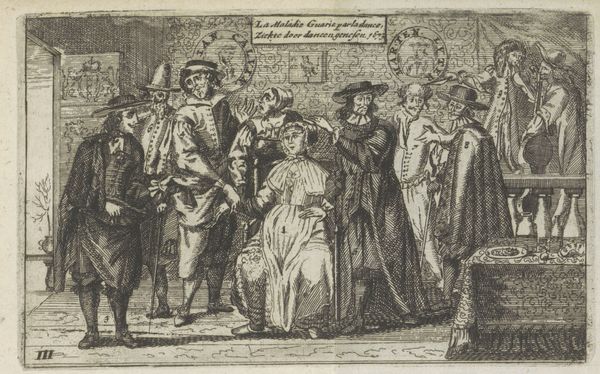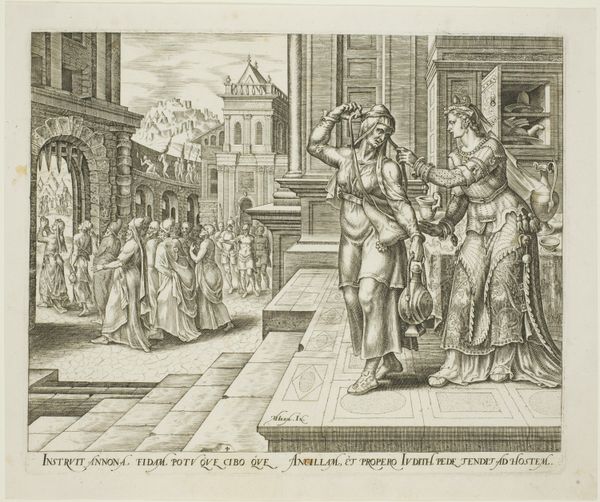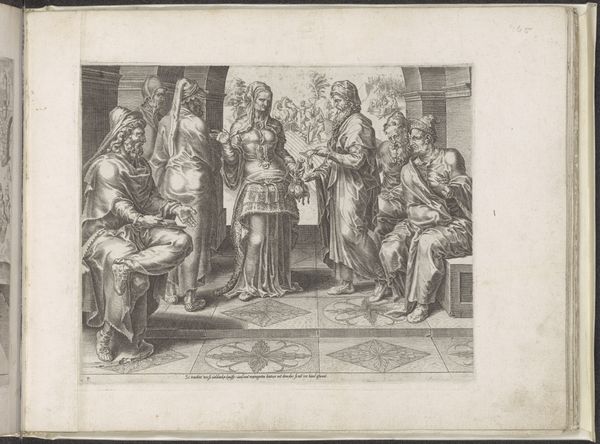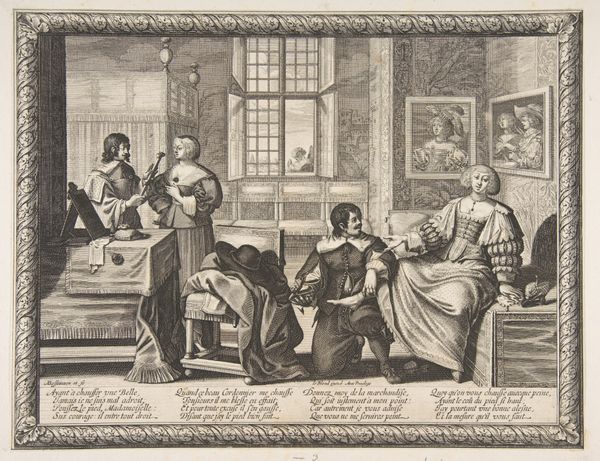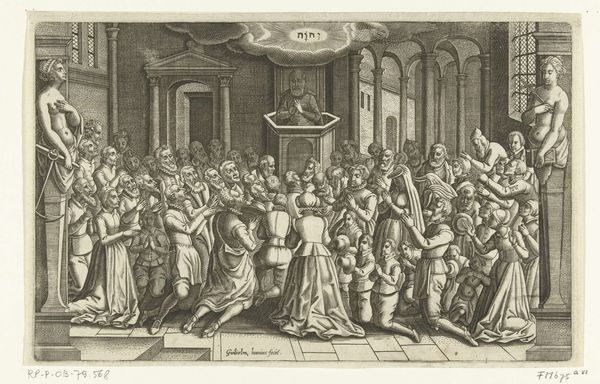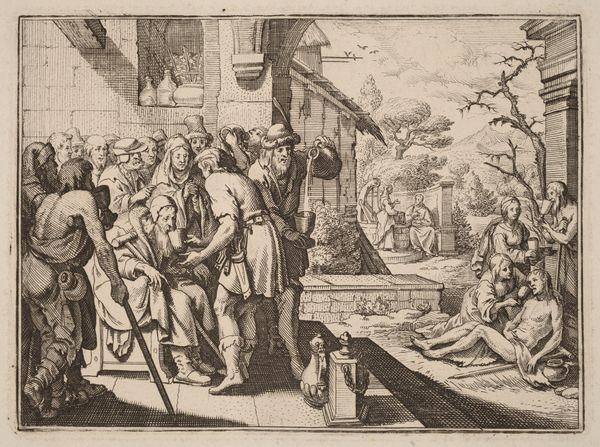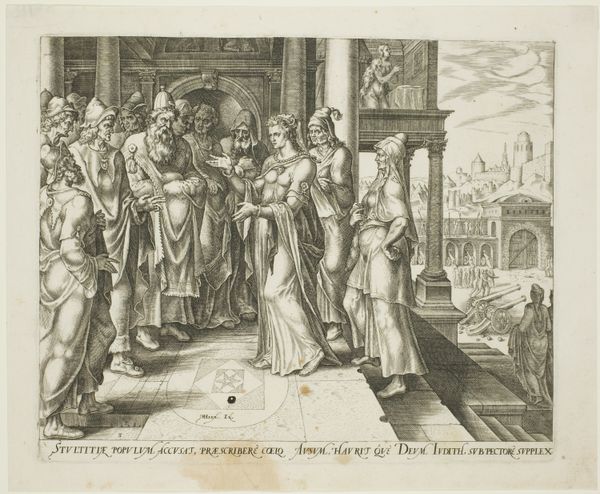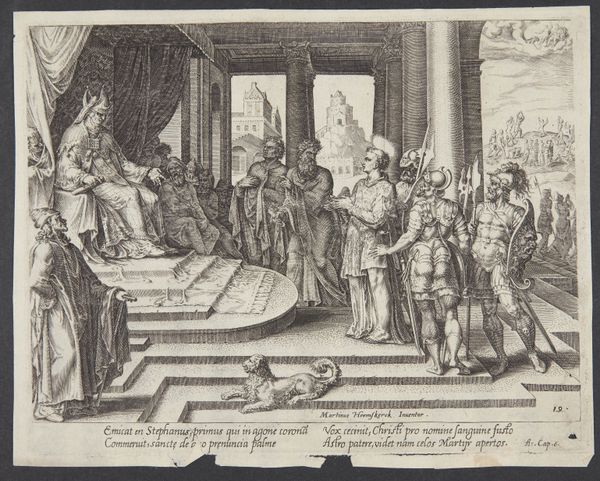
drawing, print, engraving
#
drawing
#
baroque
# print
#
men
#
history-painting
#
engraving
Dimensions: Sheet: 10 1/4 × 12 7/8 in. (26 × 32.7 cm)
Copyright: Public Domain
Abraham Bosse made this print, "The Prodigal Son Changes Clothes," in France during the 17th century. Bosse was known for his detailed engravings that captured aspects of French society, and here, he uses a biblical parable to reflect on themes of wealth, repentance, and social status. The image shows the son's return, welcomed back into his wealthy father’s home, and the change of clothes symbolizes a return to his former status. This narrative would have resonated with a society deeply conscious of social hierarchies and the moral implications of wealth. France was then experiencing significant economic and social changes, with a growing merchant class challenging the old aristocracy. Bosse, associated with a more academic and classical style, may be commenting on these social shifts. To fully understand this work, it's important to consider the history of printmaking in France, the social dynamics of the time, and the evolving interpretations of biblical stories. Research into period clothing, social customs, and religious interpretations would reveal more about its message. Ultimately, understanding the meaning of art relies on understanding its historical context.
Comments
No comments
Be the first to comment and join the conversation on the ultimate creative platform.
